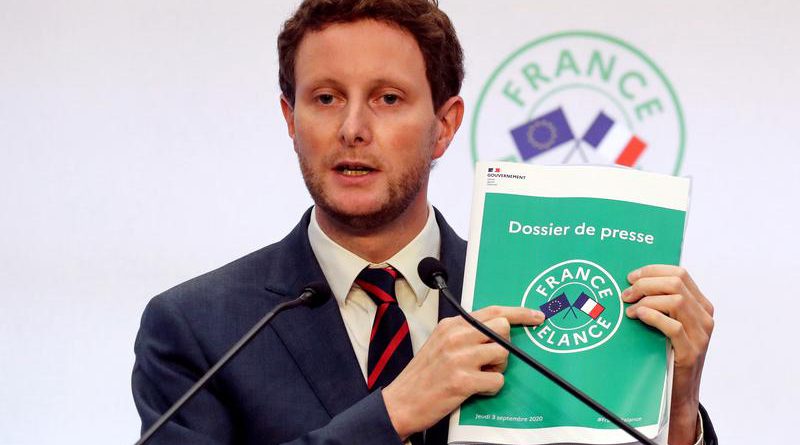French minister says Poland stymied his visit to ‘LGBT-free’ zone
Paris (Reuters) – French Europe Minister Clement Beaune said he was dissuaded by Polish authorities from visiting what he called an “LGBT-free zone” in defence of civil liberties on a trip to Poland, but the government in Warsaw denied it had blocked access.
Since 2019, at least 100 municipalities across Poland have signed declarations saying they are free of “LGBT ideology”. Although they appear not to have been followed by legislation to discriminate against gay residents, they have fuelled concern in Brussels and beyond of a drift in Poland towards illiberalism.
“Polish authorities recently told me they were not able to schedule this visit, and that’s profoundly regrettable,” Beaune told L’Obs magazine in an interview.
A spokeswoman for Beaune told Reuters the French minister planned to visit the town of Krasnik in the east, one of the 100 municipalities which signed the declaration, but that Polish authorities had indicated “it would be badly received to go to Krasnik considering the health situation.”
However, the Polish government denied the French minister, a close ally of President Emmanuel Macron, had been denied access.
“This is of course not true. No one in the Polish government forbade or made it impossible for the French deputy minister to visit Krasnik,” Poland’s Deputy Foreign Minister Szymon Szynkowski vel Sęk tweeted on Tuesday.
Critics, including the European Union, have accused the Law and Justice (PiS) government of backtracking on womens’ and LGBT rights and running a campaign laced with homophobic rhetoric in the run-up to last year’s presidential election.
Franco-Polish relations have been cold for years, with Macron saying shortly after his election in 2017 that Polish citizens “deserve better” than a government at odds with the bloc’s democratic values.
Beaune, a rising star in the French government who publicly came out as gay in December, said he had decided not to cancel the two-day trip to Poland despite not being able to fulfil a promise he made to visit the “LGBT-free zones” after his nomination last year. He met LGBT campaigners on the trip.
“I could have gone to one of these zones without the Polish government’s authorisation, but in my view, that’s not how one should behave with an EU member state,” he said.
Polish LGBT groups nevertheless took heart from Beaune’s stance.
“It’s definitely a very important signal to all of us, a political signal to our community, that we aren’t alone. That foreign politicians are also looking at Poland and that they are our allies,” Bartosz Staszewski, an LGBT activist who met Beaune on Monday, told Reuters.



